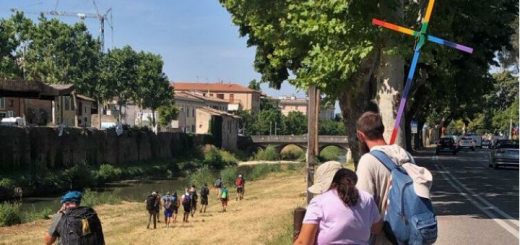Ten things to know about Tdor, the Transgender Day of Remembrance (November 20)
Article by Chris Page* Published on the website Trans Faith online (United States), freely translated by Giacomo Tessaro
ThereTransgender Day of Remembrance (Tdor) is a very particular anniversary, whose tone and intention can be easily misunderstood, especially by well -being but with little familiarity with the transgender environment. Here are ten things that every ally and organizer of the Tdor should know.
The Transgender Day of Remembrance (TDOR)
... It is commemorated on November 20th, but it can be observed on previous days or weekends, depending on the day he falls on November 20.
... It is the most important anniversary of the year for the transgender community. Generally theTransgender Day of Remembrance It is very felt by the transgender community in the month of Pride or on the coming out day.
... It approaches more to a memorial or a funeral than to other types of anniversary. The tone with which the day is observed reflects the impact of the murders on the life of the transgender community, the names and real lives of those who have gone. The first response that follows the departure of loved people is mourning and Tdor creates a space for public recognition of mourning, similarly to a funeral, a memorial or a vigil.
... It is also an act of resistance It is a way to recover our dignity. Too often the murders of the transgender people (especially in color, or in any case not white) were very violent, up to the point of brutally raging on the corpse. The evident hatred and anger of these murders are often the result of a terrorist attitude that, beyond the particular victim, intends to humiliate and degrade the entire transgender community. This is a definition of "crime linked to hatred". The commemoration of the Tdor serves to become aware of the individual and collective impact of this extreme and humiliating violence, to organize resistance and recover dignity.
... It is a protest, a vigil for justice. When transgender people are killed, the voice of public opinion often lacks. Too often the culprits are not identified, and even when the judicial system are known, it considers our lives without value and blames the victims (for example, inventing the "defense for panic from trans").
The commemoration of the Tdor is the opportunity for a collective response to the negligence and bad awareness of society and authorities (police, judges). The commemoration of the Tdor offers a space to vent the anger and to demand from the authorities, who have often failed to protect us, that they take on their responsibilities.
... helps become aware of those who, in our community, are more vulnerable. For more than ten years we have been gathering names for the Tdor and the list of murdered people has been showing no error that color transgender people are the most exposed to violent attacks. Tdor constitutes an opportunity to repent with our racism and sexism and to break our mental barriers.
... It is an opportunity to break our isolation and look for support. Who among us has lost a loved one or survived an aggression is particularly traumatized. Those who have not been directly affected/still live in fear, suffer from secondary traumas and need support to express their narrative. Tdor is an opportunity to meet and support each other to face the challenge of ignorance, bigotry and hatred. It is important to know that the commemoration of the Tdor can be difficult, emotionally speaking: therefore an emotional support should be offered to those present.
... It is an opportunity to reide our lives to the resistance, to determination and hope, in spite of the traumas of which we suffer and the fear that grips us. To say that Tdor inspires us means first of all to recognize the profound impact that violence has had on us and on our community. During the Tdor we evoke the spirit of the warrior who draws on the courage of his ancestors to take care of his children.
... It is not designed to raise funds or make propaganda. On the most important day of the year for the transgender community, the temptation to use our hopes and dreams to reach all transgender people is strong. However, Tdor is a day characterized by a powerful mixture of mourning, anger, fear and determination and should not be dedicated to other purposes, however noble or important are. Tdor's vulnerability should be recognized with sensitivity and desire to help, it must not be exploited for other purposes.
... It is an opportunity to meet people that otherwise we could not have known. For relatively privileged people who live in safety it is an opportunity to get in touch with those who are most affected by transfobia, racism, sexism etc., to cultivate authentic relationships in solidarity and understanding.
The bonds that tighten on the occasion of the Tdor are only the beginning but they invite you to strengthen these friendships in the rest of the year.
.* Chris Page identifies herself as otherwise and is the executive director of Transfaith..
Original text: Ten Things Every Ally Should Know About Transgender Day of Remembrance
> Discover the stories of those who have no voice, discover the Transitions project






